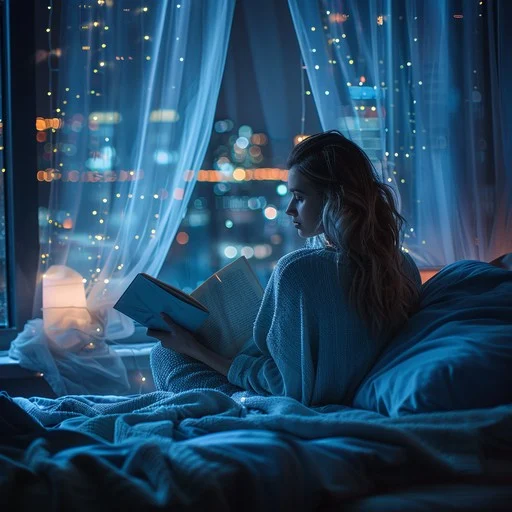Screens are everywhere—at work, at home, and even in bed. While technology keeps us connected and productive, it can also disrupt one of the most important elements of well-being: a good night’s sleep. Creating a calm, tech-free nighttime routine can significantly improve your rest, mood, and mental clarity.
In this article, you’ll learn how to build a peaceful end-of-day routine that helps you unwind, sleep better, and wake up refreshed—without relying on screens.
Why Screens Disrupt Sleep
Using phones, tablets, or computers before bed can interfere with your body’s natural sleep rhythm. Here’s why:
- Blue light suppresses melatonin, the hormone that signals it’s time to sleep.
- Constant stimulation keeps your brain alert, even if you feel tired.
- Scrolling triggers emotional responses (stress, anxiety, comparison) that make it harder to relax.
- Notifications and alerts interrupt deep sleep, even if you’re not fully aware of them.
Reducing screen time in the evening gives your mind and body the space they need to wind down properly.
Benefits of a Tech-Free Night Routine
Creating a screen-free period before bed offers powerful, research-backed benefits:
- Easier time falling asleep
- Deeper, more restorative rest
- Less mental clutter and anxiety
- Reduced eye strain and headaches
- Stronger evening habits that support mindfulness
Over time, this leads to better focus, mood, and energy during the day.
How to Create a Calm, Tech-Free Evening Routine
The key is to design a wind-down period—a series of relaxing, intentional activities that help you disconnect from stimulation and reconnect with calm.
1. Set a Digital Curfew
Choose a specific time to turn off all screens—ideally 30 to 60 minutes before bed. Set an alarm or use apps like “Digital Wellbeing” to remind you.
Make this a consistent part of your schedule to help your brain anticipate rest.
2. Dim the Lights
Lowering your lighting in the evening signals your body to start winding down. Use warm, soft lighting or candles to create a cozy atmosphere.
Avoid harsh overhead lights that mimic daylight and keep your system activated.
3. Create a Pre-Sleep Ritual
Choose 2–3 relaxing, non-digital activities you can repeat each night. Examples include:
- Reading a physical book
- Writing in a journal or gratitude notebook
- Gentle stretching or yoga
- Listening to calming music or nature sounds
- Making herbal tea
- Practicing deep breathing or meditation
Doing the same things every night helps train your mind to transition from “go mode” to “rest mode.”
4. Make Your Bedroom a Screen-Free Zone
Keep phones, laptops, and TVs out of your sleep space. Use an alarm clock instead of your phone, and charge devices outside the room if possible.
This physical separation helps your brain associate your bed with rest, not stimulation.
5. Prepare for Tomorrow
Light planning activities can reduce morning stress and help clear your mind. Try:
- Writing down your top 3 priorities for the next day
- Choosing your clothes or prepping breakfast
- Doing a quick tidy-up to create a calm morning environment
Just avoid anything that feels like “work”—keep it light and calming.
6. Focus on the Five Senses
Use sensory cues to relax your body:
- Sight: Dim lighting, clean space, soft textures
- Sound: Quiet playlist or nature sounds
- Touch: Soft blanket, warm bath, gentle pajamas
- Smell: Lavender or eucalyptus essential oils
- Taste: Warm tea or calming evening snack
Engaging the senses anchors you in the present moment and calms your nervous system.
How to Stick With It
Like any habit, consistency is key. Here are some tips to make it easier:
- Start with just 15–20 tech-free minutes and build up
- Leave your phone in another room or turn on “Do Not Disturb”
- Set your environment in advance: clean space, journal nearby, playlist queued
- Be flexible—if you skip a day, simply return to the habit the next night
This isn’t about perfection—it’s about peace.
Final Thoughts: Rest Is a Ritual
Your evenings should feel like a gentle landing, not a crash. A tech-free nighttime routine is a gift you give to yourself: a space to unwind, breathe, and transition from doing to being.
When you trade the glow of your screen for the glow of intentional rituals, you’ll not only sleep better—you’ll feel more present, connected, and rested in every part of your life.
